United Arab Emirates -

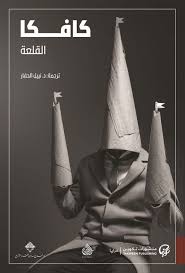
A land surveyor sent by an unknown person for some unknown purpose to the castle. The castle itself is an unknown place. It is not clear what he is supposed to accomplish there. The novel follows his repeated attempts to accomplish his work. However, he cannot move beyond the ghostly surroundings of the castle. He is never allowed to enter the castle. He also cannot return to his home. He is left alone as he faces the dualities of certainty and doubt, hope and fear, in his never-ending struggle as he moves from one maze to another.
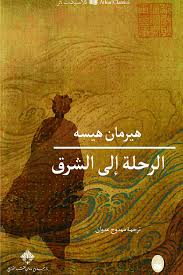
There are few writers who have chronicled with such honest clarity and such bold honesty the development of the soul through the stages of life. Peter Kamintsend (1904), Damian (1919), Siddhartha (1922), The Steppenwolf (1927), Narcissus and Goldmund (1930), and The Journey to the East (1932) are different versions of a spiritual autobiography, and different depictions of the path of Joan. Each new step refines the image of all previous steps, and each experience opens new worlds of exploration in a continuous effort to communicate the vision. Hermann Hesse, winner of the Nobel Prize for Literature in 1962, was closely connected to the Indian world. He was influenced by Eastern philosophies. When he was once asked about the most important influences in his life, he said that they were “the Christian and never nationalistic spirit of my parents’ house,” “reading Chinese masterpieces,” and “the personality of the historian Jacob Burckhardt.”
By Al-Din Hashwani / Translated by: Tharaa Al-Rumi Sader

Turning adversity into successes requires great courage. This is the true message of the famous Pakistani businessman Sadruddin Hashwani, who chose Dubai as a place to manage his business, and this is one of the summaries of wisdom that we sought for the Arab reader to study through the translation of the autobiography of the great entrepreneur, in which he narrates his philosophy and his journey in the business world, which allows the reader During it, you will learn the treasure trove of success secrets, and the foundations of the path along the rugged paths to reach the highest levels of commercial and humanitarian excellence.

He was working in a sales company to support his family, which consisted of a father, mother, and sister. He worked to pay off his father’s debts that had burdened him. He is the “good son” as long as he performs his duty to the fullest extent, and any change in this is accompanied by anger, rejection, and neglect. In his workplace, which he found himself forced to live with, the state of domination and control by the chief of staff on the one hand is clearly evident, while on the other hand, it is matched by a state of subservience and submission on his part. In fact, he has an unconscious desire to be fired from his job, but he fears for his family. From here arises a state of schizophrenia, as the two models of the cruel father and the boss represent the controlling authoritarian principle, and this is what arouses in him both submission and the spirit of rebellion. He tried to follow the rules, to be a polite boy, to be rational as his boss described him at work... and between all these honest attempts, we find him completely losing himself, and he began to experience a surprising existential crisis! Here he wakes up from his nightmares one day to find himself transformed into a disgusting “insect”!! At first glance, he thought he was still dreaming, and amid the chaos and unreasonableness of the events, he needed conclusive evidence to confirm to him the veracity of the event, and this is what he got when he found his family shocked and terrified by the horror of the event. Then he realized the reality of the event and exclaimed, saying: “No, it is not a dream.” .
By Group of authors. Presented by Hassan Dawoud
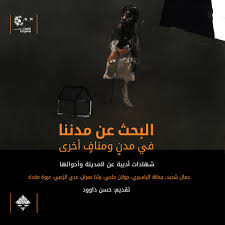
With the spread of Syrian artists and cultural practitioners around the world, it seems that the relationship with their Syrian cities, which they left or decided to remain in, remained fundamental and fundamental, but it moved to other levels of pain and hope, which alternate between the hammer of longing, nostalgia, and loss, and the anvil of anger, orphanhood, and cutting off roots. Over the past seven years, Syrians have settled in new cities. During that time, they began a journey in search of their old cities. They settled in new homes, lived and resided in them for short periods, walked on new sidewalks, or rediscovered old sidewalks, then redefined them and discovered them in new cities and headquarters. They tried to invent Damascus, Daraa, Homs, Latakia, Their Tartous, Masyaf, and Deir ez-Zor were in new cities, and they tried to draw new maps for themselves in them, and they reinvented the city between Cairo, Beirut, Istanbul, Berlin, Paris, and other cities.

Misfortunes befall the Levant Sharif, the birth of strange children increases, drought and poverty prevail, and the attempt of Ibrahim Pasha and the apostles of the French Revolution who joined him to overthrow the state of the Ottoman Sultan is nothing but a sign of the imminent arrival of Satan, as the religious extremists see, trying to preserve the Levant Sharif, fighting the creation Newspapers and comics that encourage obscenity. All of this is happening outside, while Arwa sneaks into Bernardo’s house and messes with a strange drawing of a complete being, carrying both masculinity and femininity. In an interesting plot that combines imagination with history, myth, and folktales, Khairy Al-Dhahabi tries to read the effects of the French campaign in Syria, and monitors the return of theater to the Levant, discussing many problematic issues: myth, masculinity and femininity, and the Damascene people killing those who are gay among them.

Qaddour’s text takes inspiration from the idea of confession from the text “Death and the Virgin” by the Chilean writer Ariel Dorfman. Without that, the text begins to build its purely Syrian story, which revolves around an old relationship that comes back to life between an officer who was expelled by the ruling regime in peacetime and brought back in war, and “Jalal,” who was tortured in one of the days of peace. Syrian security detention centers, and among a former detainee who was tortured under the hands of the former. The two meet when their destinies intertwine through Jalal's nephew, the theater director concerned with directing the play "Death and the Virgin" in which Akram plays the role of the tortured, while the character of the tortured girl is played by "Haya, Soha Nader", Omar's lover. In the orbit of these relationships, Radwan, Hamza Hamada, the officer’s bodyguard, gets lost without knowing the horrors he will face after leaving the officer’s service to participate in the massacre of the twenty-first century.
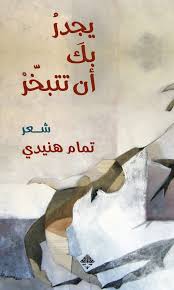
They themselves Those on whom the plane threw its deadly gifts were waving to it when they were children. They pray for rain And they die of thirst. * * * You are additional scarecrows for the birds You guard the wheat And you frighten the birds that seek to sit No chrome theft! You guard the wheat My brothers But you go to sleep hungry...
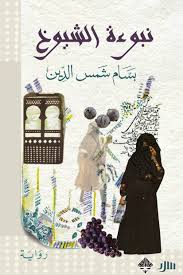
Since he found burnt bones in Tell Al-Makrab, bad luck has been accompanying Mahdi, as misfortunes continue to happen to him, as he thinks, but the head of the Egyptian excavation team has a different opinion, and that is why he seeks his help in searching for antiquities, and soon his intuition is correct, and they find the treasure. Which the ancient tales of sheikhs talk about. But bad luck intervenes again and sends his friend to prison. Will he survive? What does the ancient prophecy have to do with it? Who is the “girlfriend” that he will meet, so that each of them will change the fate of the other? With an exciting narration, Bassam Shams El-Din moves from one event to another, telling us the story of Mahdi Nasari, a poor hired hand, shedding light on the entry of the Egyptian army into Yemen, and its support for the revolution led by the Republicans against the royalists there.
By Cristina Fernandez Cubas/Translated by: Ali Ashkar
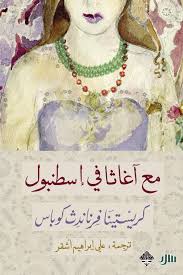
A girl enters a nunnery with a box and a wedding dress. A woman follows a homeless woman wearing a green dress through the streets of the city. A third woman’s life changes after visiting her husband’s family cemetery, and she keeps searching for herself, for a “place.” And a fourth woman is lost in a world of gray, brown, and purple faces, above which a tree floats. She survives, and a fifth woman visits Istanbul with her husband and stays in the same hotel where Agatha Christie once stayed, and the lives of the two intersect in a mysterious way. These five women are the heroines of Cristina Fernandez Cubas, who narrates a special magic that overwhelms us, seduces us, arouses our anger, and fills us with images, feelings, descriptions, and fantasies, before which we cannot be astonished, by the ability of her writer, to create a dreamy atmosphere in a unique literary style.
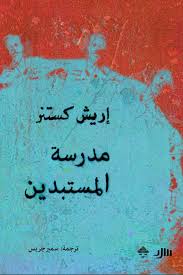
During his sermon, the president of the country violates the instructions of those around him among the regime’s seniors, which stipulate that he should not do anything or say anything other than what they had planned for him. As a result, they begin work to complete his mission and place a new look-alike in his place from among the twelve look-alikes who train them on everything related to him. The real president, but there are those who are planning a coup against this situation, so what will be his fate? In this highly contemporary and current work, the German writer recasts history to apply to many countries now, brilliantly depicting how during periods of tyranny many people turn into malleable tools, into machines and puppets. “Disobedience is a disease that leads to death in our country, a disease that is disappearing.”
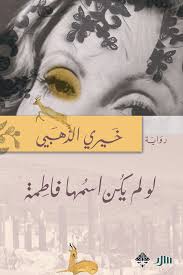
Salman visits the dead cities to make a documentary film about them, those cities that were symbols of ancient civilizations, before they became cities of broken columns and stone remains. But he finds there, in the house of one of the city's elders, a painting of a wounded deer, signed by his mother, "Fatima." Soon, the owner of the house presents him with possible scenarios for his film, all of which revolve around “Fatima,” and he finds himself entering a magical world and a confusing maze as he spies on the hidden faces of his mother, realizing that he only knew one face of her. In this novel, Khairy Al-Dhahabi manipulates times and multiple voices to write about dead cities and Fatima with its many mirrors. Who is she? What is its truth? What is the secret of wishing? “If her name wasn’t Fatima”?
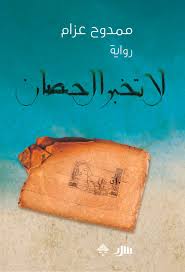
After twenty years of work, Salem ends his service in the police cavalry and returns to his home and family in Deir al-Qarn, bringing with him the only companion that has remained with him all these years: his horse. Family members have different feelings towards this guest, who will now become part of the family. The chains of storytelling revolve between the five children and the mother, and as they revolve, they weave stories and build worlds. In this novel, Mamdouh Azzam writes, in a new and different style from his previous novels, a story about a simple family that lives its tranquility and fear, its surrender and rejection, its peace and its conflicts, to stir within us endless questions and contemplations, while freedom, in its broad meaning, writes the final chapter.
-1717716819.jpeg)
On Animal Farm, the horse Boxer believes everything he is told, and works hard day and night. This pure naivety paves the way for evil people to rule our world. Naivety is not infallible. Gullibility must be accompanied by intelligence, knowledge, caution and foresight. This is wisdom. To be wise, you must know evil and see it clearly, and you must also be naive enough to believe in your ability to resist it. Through his collection of stories, Uday Al-Zoubi seeks to raise a question about the limits of wisdom, and its relationship with naivety. Foolish, unwise naivety, and evil, unnaive wisdom, almost dominate our world, spreading confusion and darkness and making the world a dangerous, ambiguous mixture of things, ideas, and stories.
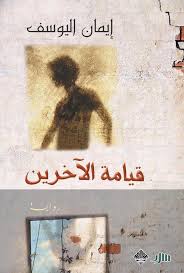
On the night that her husband and children prepare to travel, symptoms of a psychological disorder begin to appear on Mead, a photographer and newspaper archive official. A disorder that makes her see all faces as one face, the face of a bearded Greek god, and little by little, as the disorder worsens, details of the present and past events that led her to the extremely complex social maze she faces are revealed. In a narrative shrouded in mystery, the writer combines imagination with heritage, myth, fantasy, and history, to create from all of this a tight narrative text that discusses major existential and philosophical questions: What is the role of the other versus the ego? What if the hell was me? What if the world existed within the being of only one individual and everything else was an illusion?

Enter your address and we will specify the offer for your area.